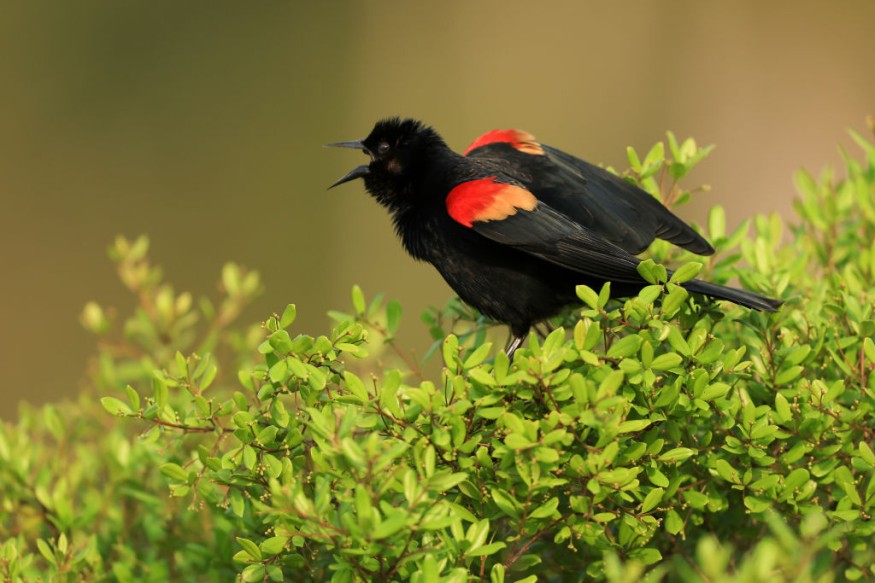
Since moving into an Ohio zoo with its family, a wild red-winged blackbird has been swooping down on guests very frequently.
Wild Red-Winged Blackbird in the Zoo
There is one specific bird that Akron Zoo staff members are advising visitors to watch out for.
According to zookeepers, this red-winged blackbird has been actively swooping on visitors a lot since he and his family decided to make the zoo their home.
The zoo says in a Facebook post that male blackbirds are fiercely territorial and protective of their nest and young. They might even try to establish contact or swoop down on someone.
According to the zoo, red-winged blackbirds are officially protected, so they ask that people respect their privacy.
Visitors to the zoo were informed by zoo officials that the specific bird is currently residing near the enclosures of the bald eagle and gibbon located at the top of the hill.
If a visitor happens to see the male bird, they should give him some room, try to establish eye contact, and then swiftly leave.
Officials encourage a love for all creatures and point out that the zoo is home to a variety of native wildlife, including squirrels, chipmunks, and groundhogs, FOX8 News reports.
Territorial Males
The Red-winged Blackbird is an extremely polygynous species, which means males can have up to 15 female partners at once. 90% of territorial males in some groups have multiple females nesting on their territories. It turns out that between 25% and 50% of nestlings were not sired by the territorial male, proving that not everything is as it seems.
During the breeding season, male Red-winged Blackbirds zealously defend their territories, devoting more than a quarter of the day to this task. He drives rival males from the area and hunts down nest predators, occasionally going for far larger creatures like horses and people.
Red-winged Blackbirds on the hunt may visit yards in search of mixed grains and seeds, especially during migration. Given that Red-winged Blackbirds like to eat on the ground, All About Birds advises spreading grain or seed there as well.
When not migrating between their summer breeding sites and winter feeding grounds, red-winged blackbirds are busy foraging during the day. According to Critter Catalog, large flocks of red-winged blackbirds congregate throughout the winter and prefer to stay in or close to locations where grains and seeds are readily accessible for consumption. In their breeding areas, red-winged blackbirds are significant invertebrate predators and can significantly affect the supply of grain and seed for their winter flocks.
Protected Bird
Red-winged blackbird nesting can lead to disputes between landowners. The Migratory Bird Treaty Act of 1918 protects these birds as native migrants and forbids any type of harm to them or their nests. When disputes emerge, professionals like them should be contacted, according to Wild Goose Chasers. The company provides individualized programs and biologically based management techniques for nesting blackbirds that are legally and humanely managed.
Related Article : Hawk Dive-Bombs People Hindering Mail Deliveries in Texas
© 2025 NatureWorldNews.com All rights reserved. Do not reproduce without permission.





